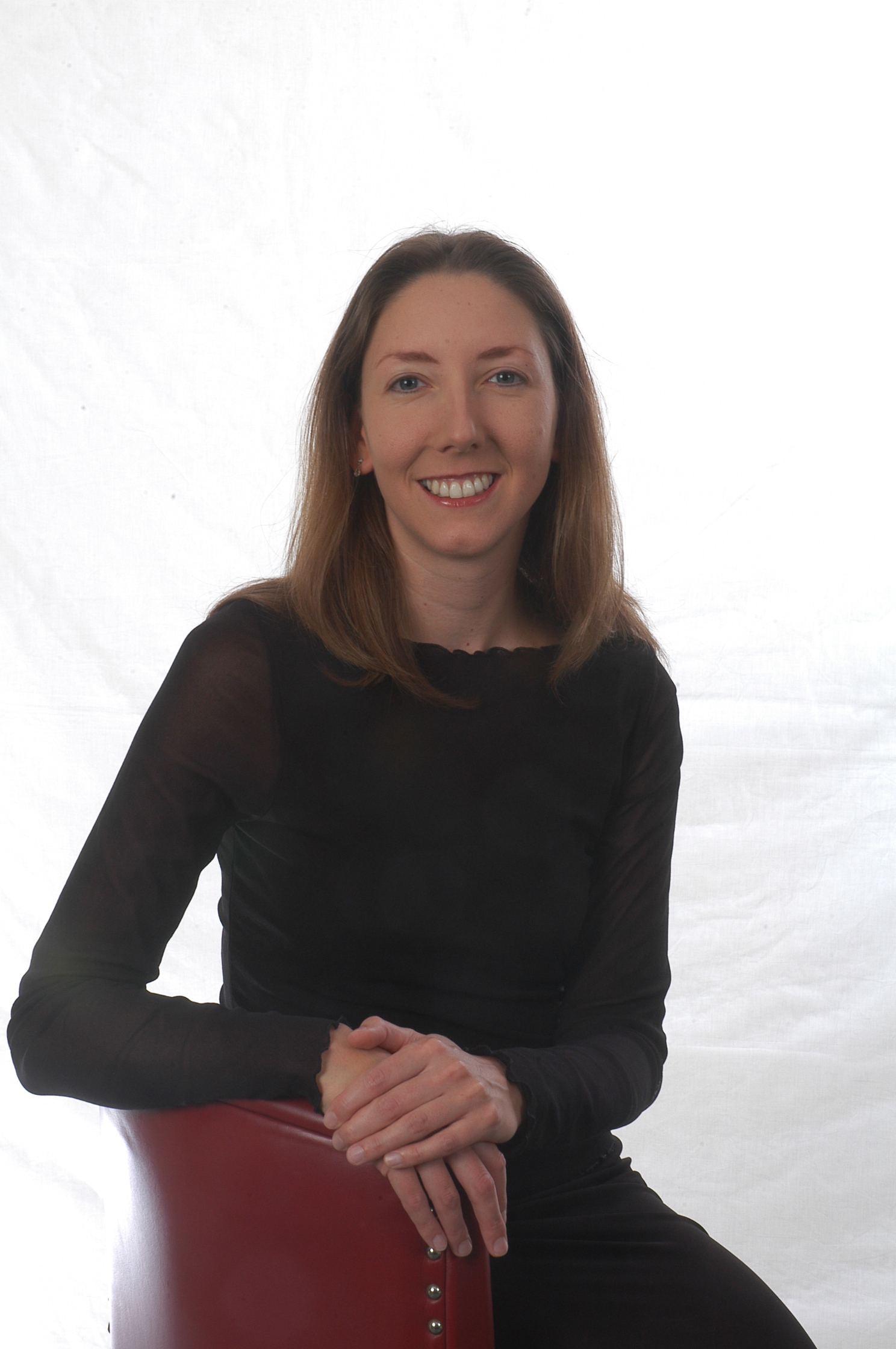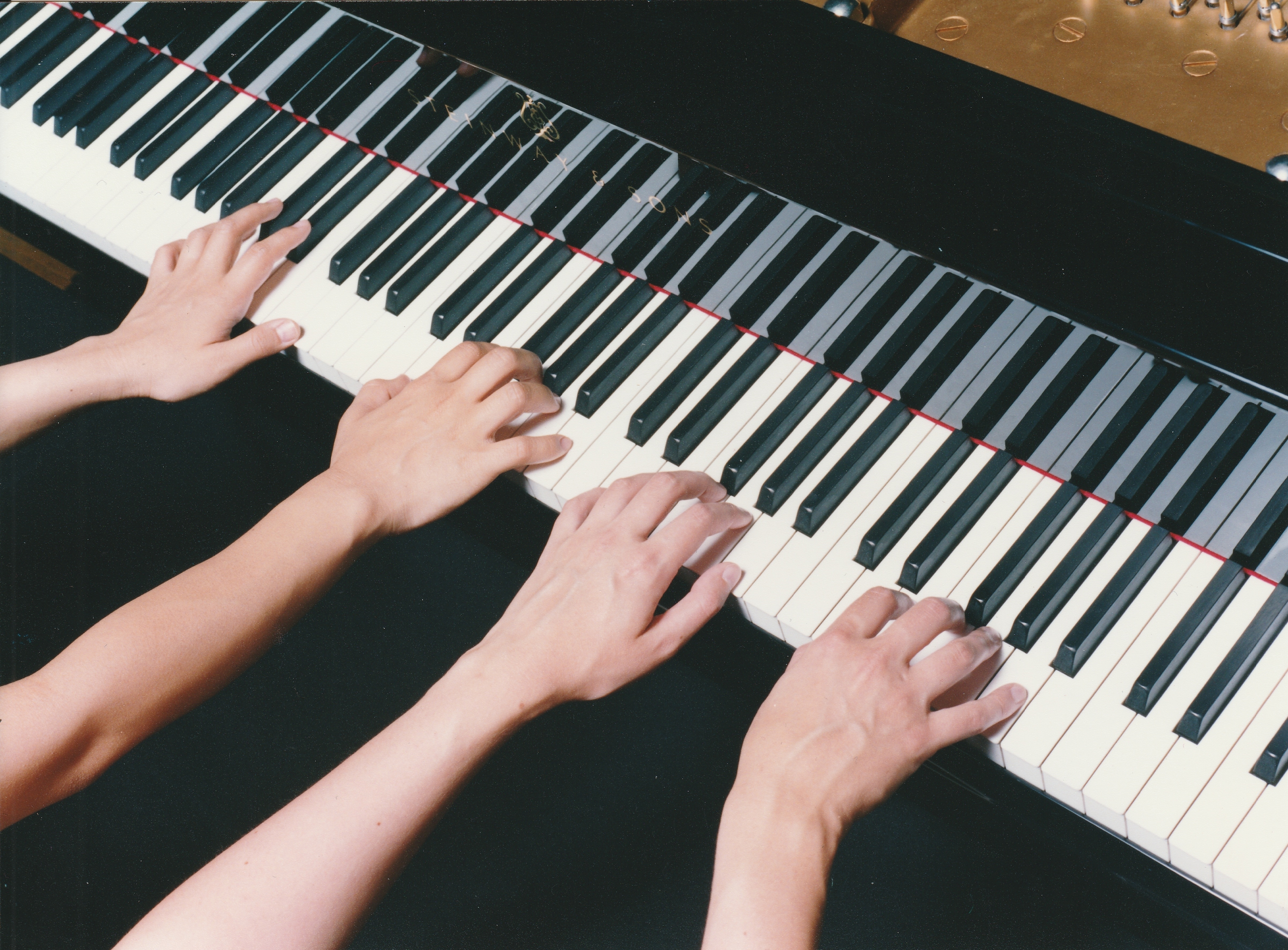Reviews

Saint-Saëns, Scarlatti, Liszt, Khachaturian,
Bach, Offenbach, Mozart, Chopin, Schubert: Béla & Julia Hartmann (piano), MV
Balmoral Cruise, 29.9.2013, 2.10.2013.
There is an ever-pressing danger that any piano recital given on board a cruise
liner will descend to the lowest common denominator. I have heard well-qualified
on-board pianists present the most hackneyed pieces in an obvious attempt to be
popular. Without being too specific, it is fairly easy to cite the particular
Chopin ‘Nocturne’, Rachmaninov ‘Prelude’ and Liszt ‘Liebstraum’ that will
feature in many programmes. That is to say nothing about the inevitable
arrangement of Andrew Lloyd Webber or Lennon and McCartney. There is no
condemnation implied of popular pieces as such – only an obsession with them.
It is not my intention to second-guess the musical ‘literacy’ of any given
cruise audience, however it is likely to much less-specialised than the Wigmore
Hall crowd. Their range of interest will span Einaudi to Elgar and back to John
Barry and Sebastian Bach. Inevitably, one of two musical ‘anoraks’ will be in
the audience wondering why their particular protégé is not given wider billing.
The odd musical snob will deprecate the presence of any pot-boilers in the
programme.
Béla and Julia Hartmann struck an ideal balance with their two excellent
recitals given on the MV Balmoral, as the ship sailed from Southampton towards
some lesser-known ports in the Mediterranean. This husband and wife team chose
to present a wide range of music, mainly for piano solo, but also including a
number if duets.
The first recital (29th September) began with a good account of some of Saint-Saens’
Carnival of the Animals, including the ubiquitous ‘The Swan’ and the
less-commonly heard ‘Lion’s Royal March’ complete with the roar. Although
Domenico Scarlatti (1685-1757) was born in Italy, he spent much of his career in
the service of the Spanish and Portuguese royal households. So this association
made him highly appropriate for a cruise visiting Lisbon and Malaga. Scarlatti
wrote some 555 piano sonatas and unfortunately there was only space for Julia to
play two of them. These are timeless works that defy categorisation.
Beethoven was represented by the final two movements of his Sonata in E flat,
Op.27 No.1 (Quasi una fantasia). This was a bold choice and avoided the
temptation to opt for the ‘Moonlight’ or the ‘Pathetic’. The final movement of
this work is particularly interesting and adopts a cyclic form with references
to the opening and slow movements. Béla played this with great proficiency and
enthusiasm.
The next group of works were given by Julia and included the famous C sharp
minor Prelude by Rachmaninoff alluded to above. However it was good to hear the
slightly less-popular G sharp minor example from Op.32. The easiest of Liszt’s
Consolations (No.1) followed before she concluded with a stunning performance of
Khachaturian’s Toccata dating from 1932. Originally part of a larger piano suite
including a Waltz–Capriccio and a Dance, this work utilises folk-music from
Armenia as well as the then-contemporary modernist techniques with driving
rhythms and a contrasting nostalgic middle section. This first recital concluded
with Dame Myra Hess’ piano duet arrangement of ‘Jesu, Joy of Man’s Desiring’,
from Cantata BWV147. It is an adaptation that I did not know existed, however I
understand that is was published some eight years (1934) after the solo version.
It is effective in both incarnations.
Whilst the MV Balmoral was steaming north along the Spanish coast towards the
Costa Brava town of Palamos, Béla and Julia Hartmann gave their second recital.
This time the proceedings opened with an arrangement for piano duet of Jacques
Offenbach’s ‘Barcarolle’ from the Tales of Hoffmann. I was delighted to hear
another work from Scarlatti, this time the well-known (certainly the most
recorded) Sonata in E major, K380. It is my favourite.
I have never heard a live performance of Mozart’s improvisatory Fantasia in D
minor, K397, so it was interesting to hear Julia give an inspiring account of
this challenging piece. The work is characterised by a certain lack of
‘traditional’ form and has a considerable number of tempi changes.
Béla Hartman followed this with Chopin’s Nocturne in E minor (No. 19, Op.72/1
posth.) with its attractive cantabile sections balanced by a more passionate
middle section. This work was composed when Chopin was only seventeen, but
already reveals the hand of a master. Robert Schumann’s Kinderszenen is always
popular with audiences. Béla played three of the thirteen movements including
the beautiful ‘Träumerei’ (Dreaming).
The major work in the second recital was the massive Scherzo in B minor by
Chopin. Béla played this work with great absorption and matched the brilliant
opening and closing ‘whirl of stormy emotion’ with a much more poetic middle
section which is composed in the relative minor. The recital concluded with
Franz Schubert’s ‘Military March’ in D for piano duet which is always guaranteed
to ‘bring the house down.’
There were a few concerns that I had about these recitals, none of which
reflected on the two artists’ technical and interpretive accomplishments.
Firstly, the piano was a little ‘temperamental’. At times there seemed to be an
almost metallic ‘honky-tonk’ accompaniment to the proceedings. To be fair, this
instrument is used for all kinds of music making, from jazz, the ‘Shows,’ the
Sunday Service and ‘jazz by night.’ Secondly, the recitals took place in the
Neptune Lounge. On the MV Balmoral this is the main performance space where most
of the theatrical entertainment takes place. There is a bar for the patrons, and
unfortunately no-one seemed to have told the bar staff that a piano recital was
in progress. It is very difficult to concentrate on Chopin and Scarlatti to the
accompaniment of ice buckets being filled and emptied, glasses stacked and
bottles being thrown into waste bins. On this ‘note’ it was also unfortunate
that the ladies ‘powder room’ was near the door of the lounge – every so often
the sound of the ‘Dyson’ hand-dryer drowned the more reflective musings of the
pianists.
Finally, I should have liked Béla and Julia Hartmann to have played one or two
pieces that reflected the largely Spanish destination of the cruise. Scarlatti
is a wee bit tentative; however a couple of pieces by Albeniz, Turina or
Granados would have fitted the bill ideally. But in spite of this last
criticism, these were exceptionally well-planned recitals that explored a goodly
range of music. The quality of the playing was excellent throughout and the
audience managed to behave reasonably well: I was only conscious of a few
prolonged stage-whispers and coughing fits as events proceeded.
John France
http://seenandheard-international.com/2013/10/recitals-sea-hartmanns/
Pianist makes masterful debut - Julia Hartmann (piano),
Bristol Cathedral
With the piano placed in the choir, there was a more intimate feeling given to
this lunchtime recital presented by Julia Hartmann on her first visit to
Bristol.
A popular programme started appropriately enough with October from Tchaikovsky’s
The Seasons, a gentle piece charmingly played. Brahms’ arrangement of a Bach
chaconne is a test for any pianist as it is for left hand only. The intricate
music wasn’t a problem for Julia who gave a brilliant rendition in which she
showed amazing stamina.
The two Rachmaninov preludes were both in the minor key. The G sharp is both
quiet and intense whilst the famous C sharp is full of ferocious chords which
gave Julia no problems at all. Chopin’s Nocturne in C Sharp minor was played
with graceful abandon by the pianist before tackling the mighty Scherzo No 1.
Ms Hartmann certainly made a great impression.
9/10
John Packwood, Bristol Evening Post,
Wednesday, October 21, 2009
Blenheim Music Circle 14th July 2002
A Concert by Julia Hartmann (née Williams) and Yukie Wake
It is not often that one gets an opportunity to hear such delightful and
intriguing music, and the enthusiasm of the audience demonstrated how amply they
had been rewarded for coming on one of our rare summer days.
The Blenheim Music Circle was recently entertained by two young pianists, Julia
Karen Williams and Yukie Wake, with a programme of piano duets. Such a programme
presents its own difficulties, for if it is not to become merely a matter of
accuracy and strict timing, what is called for is a peculiar empathy which
enables the performers to feel, as it were, the very heartbeats of their
partners and to anticipate the dynamics, touch, phrasing and timing that breathe
life into a score. Then again there is the problem of material. It is clear that
composers who were also piano teachers would write pieces which master and pupil
could play together on the same piano, especially if the pupil were young and
pretty. Such pieces would vary in difficulty and depth according to the skills
of the pianists involved.
The four pieces chosen for this concert covered a range of music especially
associated with Vienna and Prague. It began with Beethoven, his set of
variations on a theme of his friend and patron, Graf von Waldstein - an early
piece with plenty of youthful fireworks which the artists communicated well.
This was followed by Schubert’s much-loved Fantasie in F minor where the
pianists successfully conveyed the energy and delicacy, the lyricism and drama
that this wonderful work demands.
After the interval we had the Sonata KV 19d by Mozart, a charming
exhibition-piece perhaps written with his gifted sister, Nannerl, in mind, but
the highlight of this half of the concert was the set of five Slavonic Dances by
Dvorak. These pieces are rhythmically and melodically so high-spirited that it
is difficult to prevent oneself from being swept away, at least in imagination,
and joining in the dance, and certainly the pianists excelled themselves,
thinking and playing as one through the expressive variations which this music
demands.
It is not often that one gets an opportunity to hear such delightful and
intriguing music, and the enthusiasm of the audience demonstrated how amply they
had been rewarded for coming on one of our rare summer days.
David Shavreen

Home - Biography - Reviews - Media - Yukie Wake - Béla Hartmann - Contact
© Apion Websites 2022